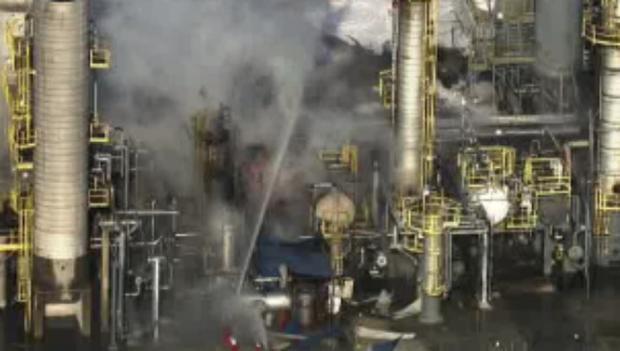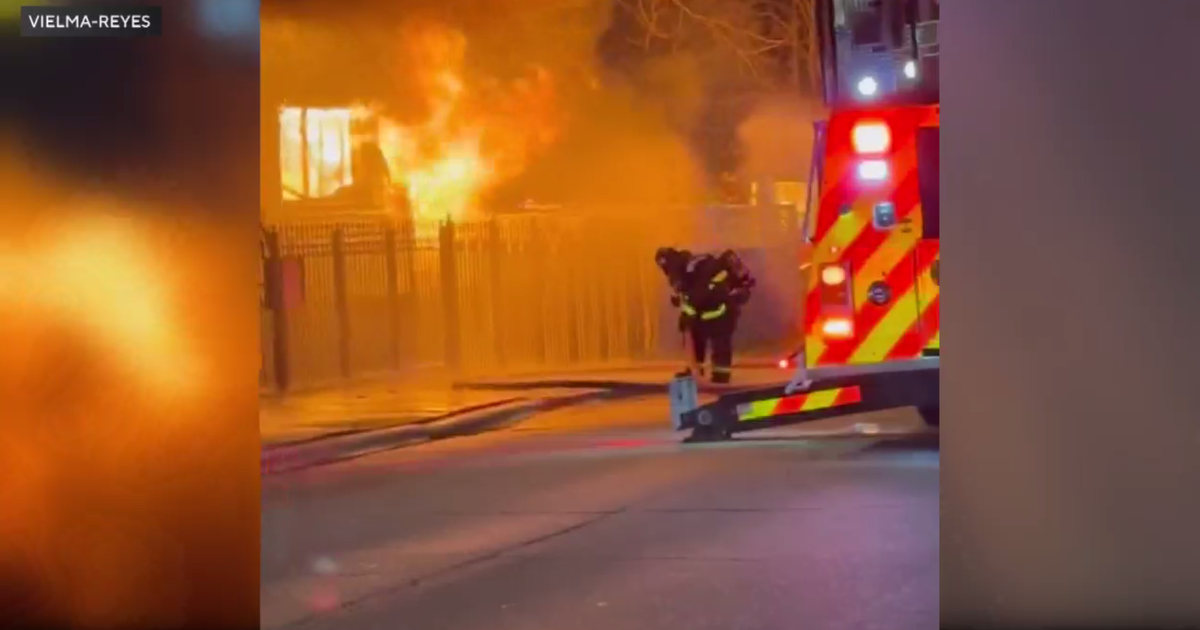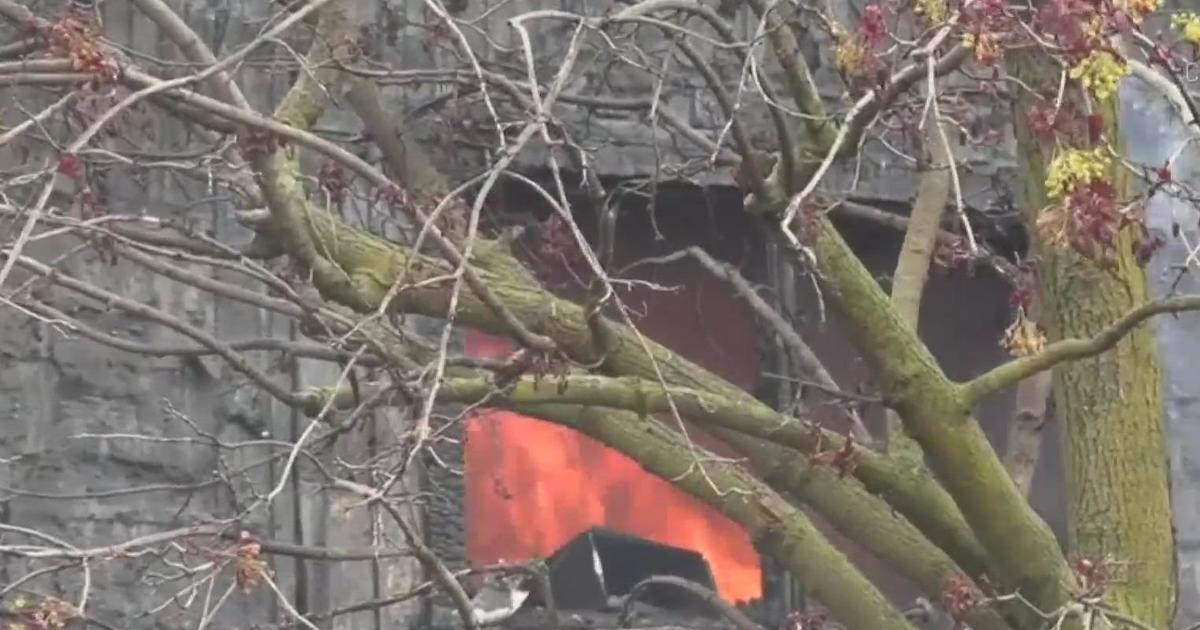Explosion, Fire At Alsip Plant
CHICAGO (CBS) -- A petrochemical plant explosion in Alsip injured two people on Friday.
The blast caused by a chemical release led to a large fire at the Blue Island Phenol, 3350 W. 131st St.; one building was destroyed and another was damaged. The fire, which started shortly after noon, was extinguished around 2:20 p.m., officials said.
About five businesses to the west of the plant were evacuated. Classes at Eisenhower High School, about a half-mile away, were not disrupted.
The two injured people, believed to be workers at the plant, suffered burns and were transferred to Advocate Christ Medical Center in Oak Lawn. They were later transferred to Loyola University Medical Center in Maywood and were reported to be in stable condition.
Dozens of area police and fire departments and a hazmat team converged on the scene after the blast. Alsip Fire Chief Thomas Styczynski said the black smoke stayed high in the air most of the time.
Scott Poncinie, a Chicago State student who lives about three blocks away, said he heard a muffled noise just before noon and then his entire house shook.
"I thought it was an earthquake at first," Poncinie told the Southtown Star.
Blue Island Phenol manufactures acetone and phenol, an ingredient used to manufacture certain herbicides, cosmetics and pharmaceuticals.
In 2008, the company reached an agreement with the Illinois Attorney General's office following a fire at the facility, according to a statement from the AG's office at the time.
Under that agreement, the company agreed to hire an engineer to analyze the cause of the accident and make needed repairs before it could resume production. The company also was required to assess soil and groundwater contamination caused by the runoff of water used to extinguish the fire.
The company said the fire erupted after a storm caused a power outage at the plant.
Without power, cooling and circulation systems in the phenol unit failed, causing the temperature and pressure inside the phenol unit's oxidizers to rise, starting a chemical fire.




